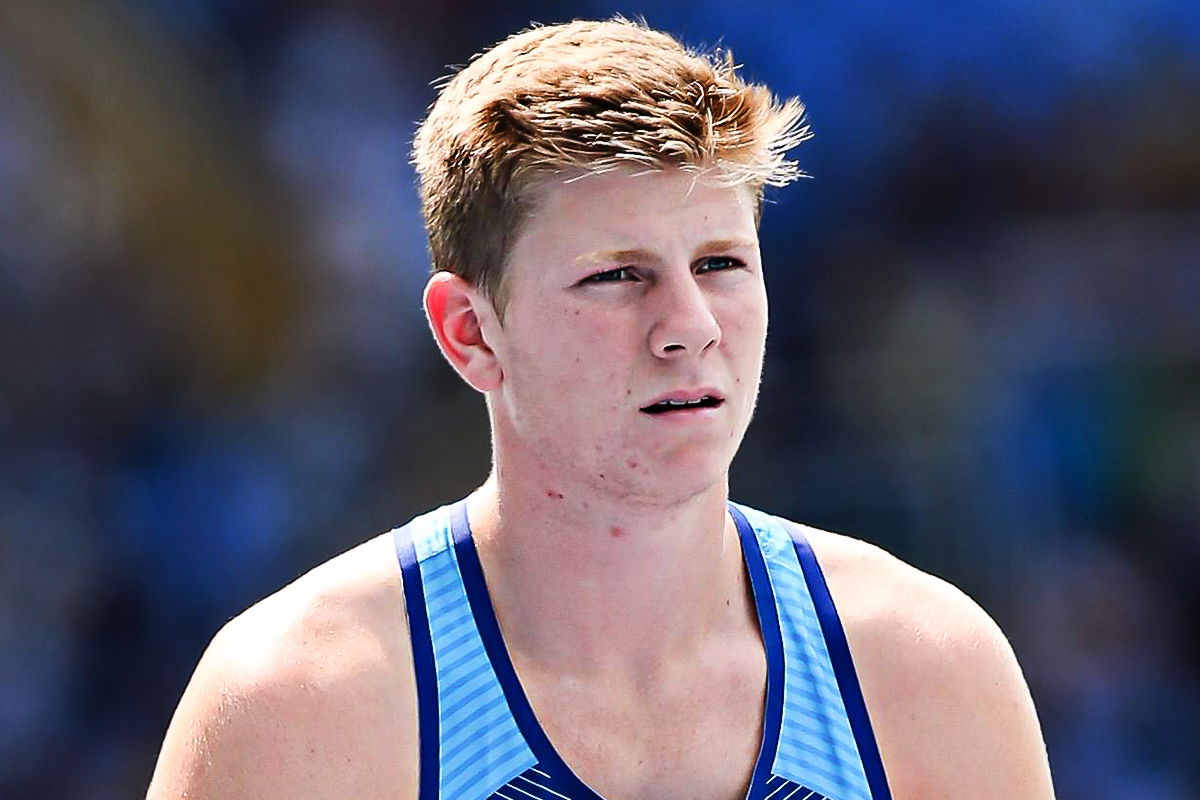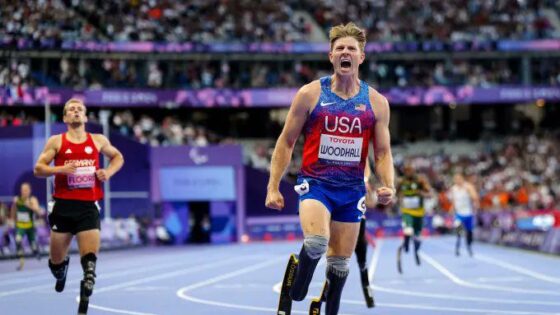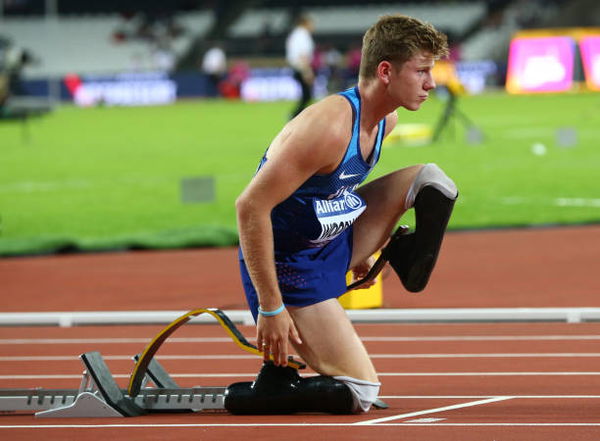
Imago
Imago

Imago
Imago
Hunter Woodhall and his wife, Tara Davis-Woodhall, are basically track and field royalty, and for good reason! He’s a Paralympic gold medalist, a double amputee who’s blazed a trail to glory, while Tara is a shining Olympic long jump champion. But beyond their impressive medal count, they’re incredibly passionate about making things more accessible, especially when it comes to pushing for affordable prosthetics. But what happens when their wish to open doors for every aspiring athlete ends up creating a big fuss?
Watch What’s Trending Now!
Well, Hunter recently set off a bit of a firestorm with a Threads post where he declared, “Running is a privilege, not a right.” Now, he meant this in the context of his work on prosthetic accessibility, but it struck a nerve with some people. Critics immediately jumped in, feeling like he was gatekeeping a sport that should be for everyone. However, Hunter’s goal was actually to highlight the real barriers, like ridiculously expensive prosthetics, that stop so many people from even getting to the track.
ADVERTISEMENT
View this post on Instagram
Although later he cleared things up, explaining that his whole point was to revolutionize sports accessibility through a new prosthetic office and an Arkansas bill that would make insurance cover secondary prosthetics. So, his words weren’t about shutting anyone out; they were about shining a big, bright light on the very real obstacles people face. So, how did he handle all the backlash?
ADVERTISEMENT
Hunter doubled down on Instagram, unreserved yet thoughtful. “Running is a privilege,” he wrote in a post on October 29, 2024. “If you have a healthy body, a safe place to run, or the time to fit it in, don’t take it for granted! So many are left without this privilege, and it’s a mission of mine to use my journey to empower as many people as possible to have the same ability!”
With 835K followers, his message landed with impact, connecting his tough journey, like his mom driving him 2,000 miles for medical care, to this much larger fight for access. He’s not backing down; instead, he’s leaning in, using his platform to ignite real change. Can he shift this whole conversation from controversy to meaningful action?
ADVERTISEMENT

ADVERTISEMENT
Hunter Woodhall’s journey isn’t just about outrunning his doubters; it’s about tearing down systemic walls. His tireless work on making prosthetics affordable could fundamentally change who gets to experience the joy of running. The big question is, will his bold stance truly spark real progress in track and field? Well, Woodhall doesn’t only face obstacles on tracks.
ADVERTISEMENT
Hunter Woodhall struggles off the field as well
Hunter Woodhall, the Paralympic gold medalist and double amputee, is practically a master at leaping over hurdles on the track. But off the track, this 26-year-old faces a whole different kind of challenge: the everyday reality of living and competing with running prosthetics. The constant grind of maintaining his prosthetics shows us a less flashy, more down-to-earth side of his journey.
So, what exactly does it take for him to keep running at such an elite level? Hunter’s prosthetics are truly cutting-edge, but they come with their own set of never-ending issues. He recently shared in a Travel + Leisure interview just how much of a nightmare it can be to travel with them. “I always have problems with prosthetic tools,” he admitted.
ADVERTISEMENT

Imago
Image via IMAGO
“I have to travel with a certain set of tools in case anything goes wrong, especially with my running prosthetics, bolts, or track spikes. I follow the rules—for instance, I only carry a wrench that’s a certain length. But they give me the hardest time and have probably taken my tools a dozen times.” These tools aren’t just random gadgets.
ADVERTISEMENT
Rather, they’re essential for quick fixes, but airport security often snatches them away, leaving him in a tough spot. Ultimately, Hunter Woodhall’s story isn’t just about how fast he can run; it’s about incredible resilience. His powerful push for change has the potential to transform adaptive sports completely. Will his hurdles pave a much smoother path for countless others who come after him?
ADVERTISEMENT
ADVERTISEMENT
ADVERTISEMENT